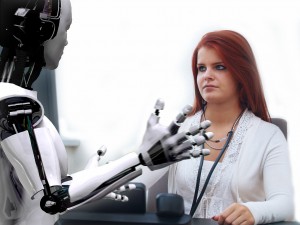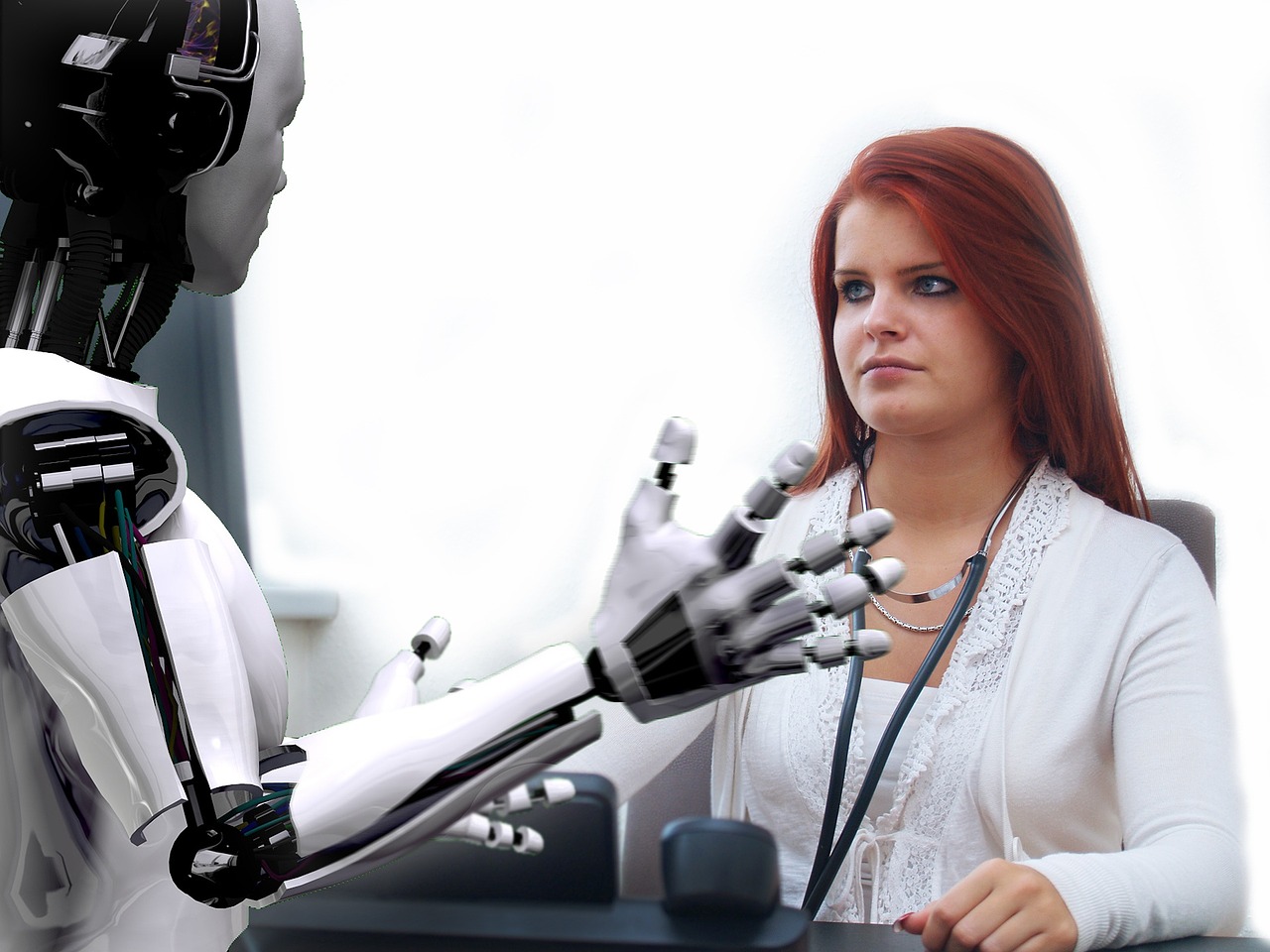What tomorrow’s world will be like
Technology is advancing so fast that it will change the way the world operates for our children. By the time they grow up it is predicted that robots will be far cheaper than humans to do many jobs, that Artificial Intelligence (AI) will be a reality and that they will be able to out-think humans, and that brain controlled technology will be used in our daily lives.
“Why does this affect us now?” I hear you ask, “surely this is all science fiction.” The reality is that this is not fiction, but a genuine prediction for the future, somewhere in the next 20-50 years. The Human Race is approaching the modern day equivalent of the Industrial Revolution, however this time we have warning.
The Industrial Revolution affected millions around the globe, people lost their livelihoods, jobs and homes as they found they could not compete with the machines that could manufacture at a rate faster than them. Now we are facing the same with robots. Employers of people doing tasks that could be performed by a robot will soon be asking themselves which is more cost effective, which is likely to break/be sick more often, which causes more problems, which is cheaper.
It is being predicted that we are approaching a point in time when computers will be able to outthink us. The search for Artificial Intelligence, computer minds that develop and learn independently, has been happening for many years. Currently computers only have the capacity to do what human brains can do, just a great deal faster. However once AI does get born, it will not be long it learns to think for itself and be able to create things that our brains do not have the capacity to imagine.
Brain-controlled technology is already available, in the form of remote controlled toys, such as helicopters. They work by being controlled by clarity of thought, for example to get the helicopter to lift off you need to focus on one thing and the sensors detect your focus and project that onto the helicopter. This technology will not be able to read your thoughts, but it will be able to recognise the parts of your brain that you are using and the intensity with which you are using them. Scientists have recently used this technology to drive a car for example and as it becomes more accurate the uses will become more widespread.
What do we need to do to help our children prepare for the future?
The skills that our children will need as they grow up, get jobs and become parents themselves are going to change from the skills that you needed. What was good enough for you really is no longer good enough for our children.
Our children will need to consider what problem do they want to solve for people when it comes to pursuing a career for example, asking “What job do you want to do?” will limit them in the future. Collaboration and information sharing will be key to helping the human race to not be reliant on computers to think about things that take more than one brain. They’ll need to recognise when to use technology and when they don’t, teaching children to self-limit screen time and use of technology is a great way of laying those foundations. It will become more important for our children to recognise their self-identity and their emotional wellbeing; they will need to be able to regulate their emotions and focus in order to operate brain-controlled devices.

What are the 6 shifts that society today needs to make to help the future?
- Education – We need to move away from the expectation that children just need to know about how to pass exams. As we have seen the future is going to provide many issues that will require flexibility of thinking, something that will not get taught by just being able to pass exams.
- Workplaces – The way we earn money needs to change, currently we see money as a right – if you work you have a right to get paid, if you are unemployed you have a right to get paid. However to be able to adapt to the world that we will see develop then we need our children to be creative about how they earn money, in the future with the rise of robots, people will need to be more useful than them to earn money.
- Self-awareness – The ability to recognise your self-motivation, have a secure sense of self, to be able to focus, to have a growth mindset, to understand the importance of physical exercise will all be important skills in tomorrow’s world.
- Finance – As people find themselves needing to earn incomes in different ways, they are likely to come up against a number of money blocks in their mind. This may be that they don’t have to work to earn money, it may be that they encounter blocks that were inherited from their family, but whatever it is they need to have healthy money habits as they grow up.
- Technology – In the future if someone is dependent on achieving only using technology, then there will be little use for the person. Employers or others seeking answers or solutions will go direct to technology. Therefore we need as a society to be making choices about how to use technology and how to self-limit tech use from a very young age.
- Collaboration – Where the human race excels is in our ability to collaborate and in the future community collaboration will be vital to keeping the identity of the human race. For example soft or collaborative skills like mentoring and coaching will still be provided by humans to enhance other humans, information sharing and storytelling are skills that can be taught to children today that will help them in tomorrow’s world. Employers need to focus on more collaborative styles of working. Support mechanisms like mentoring and coaching that facilitate creative thinking to improve the effectiveness of the workplace will enable companies to perform better.
Richard Daniel Curtis is the Parenting Futurist, regularly speaking and writing about parenting futurism, what parents can be doing now to help tomorrow’s world, if you’d like more information or would like to interview or book Richard, please email enquiries@thekidcalmer.com.



